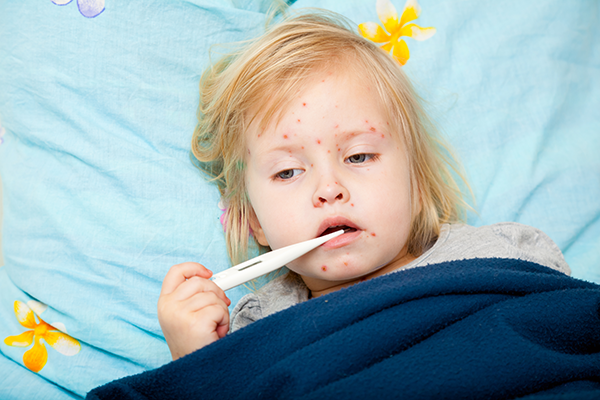Measles have been in the news lately. The CDC has urged the nation to get measles vaccinations after a presumed outbreak originating in Disneyland in December. Although virtually eradicated within the United States through the use of immunizations, a sudden spike in cases have been reported in western states. 100 cases of the measles have been confirmed so far. According to the Centers for Disease Control and Prevention there were 222 cases of measles in 2011. According to the World Health Organization (WHO), measles is a leading cause of death in children worldwide and accounted for 139,300 global deaths in 2010. The majority of those deaths were of children less than 5 years old.
What are Measles?
Measles, or rubeola, is a viral infection of the respiratory system. Measles is a very contagious disease that can easily be spread through contact with infected mucus and saliva. The virus can be spread through the air through coughing or sneezing of an infected person. The virus can live on surfaces for several hours. As the infected particles enter the air and settle on surfaces, anyone within close proximity can become infected with the measles virus. Sharing eating utensils and cups previously used by an infected person can spread the virus.
What Are the Symptoms of Measles?
 Symptoms of measles generally appear within 14 days of exposure to the virus and include; cough, fever, red eyes, sensitivity to light, muscle aches, runny nose, sore throat, and white spots inside the mouth. A classic sign of measles is a red itchy skin rash that may last up to 7 days and typically appears within the first 5-7 days after exposure. The rash develops at, or near, the head and spreads to other parts of the body.
Symptoms of measles generally appear within 14 days of exposure to the virus and include; cough, fever, red eyes, sensitivity to light, muscle aches, runny nose, sore throat, and white spots inside the mouth. A classic sign of measles is a red itchy skin rash that may last up to 7 days and typically appears within the first 5-7 days after exposure. The rash develops at, or near, the head and spreads to other parts of the body.
How to Prevent Measles
If you suspect you have measles, contact your doctor immediately. If you have not received a measles vaccine and you come into contact with an infected person, your doctor can provide a measles vaccine. However, you need to receive this vaccine within 72 hours of contact to prevent an infection. You can also prevent an infection with a dose of immunoglobulin taken within six days of contact with an infected person.
How to Treat Measles
There is no prescription medication to treat measles, however your doctor may recommend:
- acetaminophen to relieve fever and muscle aches
- rest to help boost your immune system
- drink plenty of fluids (up to 6-8 glasses of water a day)
- use a humidifier to ease a cough and sore throat
- taking vitamin A supplements
Make sure you listen to the advice from your healthcare professional if you are diagnosed with measles or come into contact with someone who has the measles.
Do you need prescription medications but lack insurance or a comprehensive prescription drug benefit? Then download a card at EasyDrugCard.com and use it to save on your next prescription. The card can be sent to your mobile device through a text message or email or can be printed to your home printer. Use our pharmacy locator to find one of the 65,000+ participating pharmacies that accept our card – there’s one near you.











